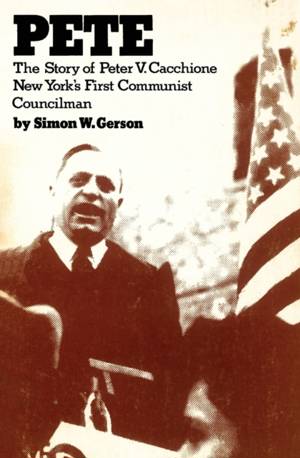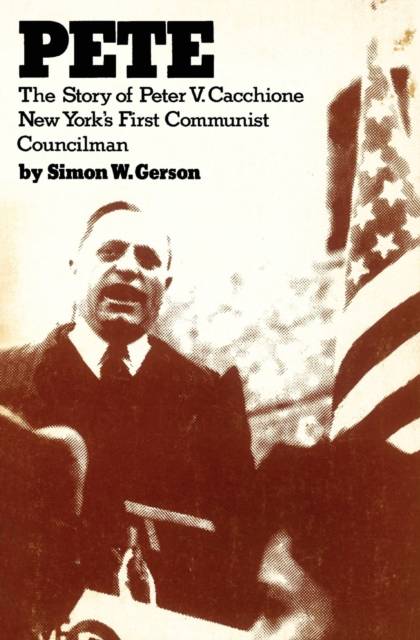
- Retrait gratuit dans votre magasin Club
- 7.000.000 titres dans notre catalogue
- Payer en toute sécurité
- Toujours un magasin près de chez vous
- Retrait gratuit dans votre magasin Club
- 7.000.0000 titres dans notre catalogue
- Payer en toute sécurité
- Toujours un magasin près de chez vous
Pete
The story of Peter V. Caccione New York's first communist councilman: the story of Peter V. Caccione
Si GersonDescription
A small-town boy brought up on the "wrong" side of the railroad tracks, Pete knew back-breaking toil and the agonies of the jobless. Hunger and homelessness were no strangers to him. He spent his first night in New York in a municipal flophouse but when he died he was a Communist member of the New York City Council mourned by hundreds of thousands who came to know him in the tumultuous '30s and '40s. There may be no laws bearing his name, but many of the demands for which Pete fought, be it unemployment insurance, social security or the
prohibition of racist advertisements, have today become commonplace realities. It can fairly be said that Pete's career illustrates the old saw that yesterday's soapbox speech often becomes today's solid statute.
Spécifications
Parties prenantes
- Auteur(s) :
- Editeur:
Contenu
- Nombre de pages :
- 218
- Langue:
- Anglais
- Collection :
Caractéristiques
- EAN:
- 9780717804733
- Date de parution :
- 14-05-21
- Format:
- Livre broché
- Format numérique:
- Trade paperback (VS)
- Dimensions :
- 133 mm x 203 mm
- Poids :
- 254 g

Les avis
Nous publions uniquement les avis qui respectent les conditions requises. Consultez nos conditions pour les avis.






